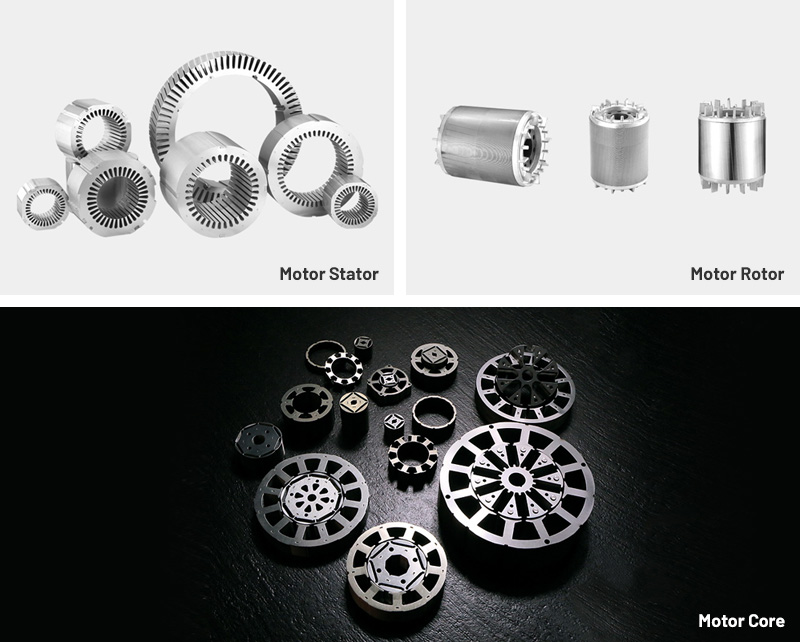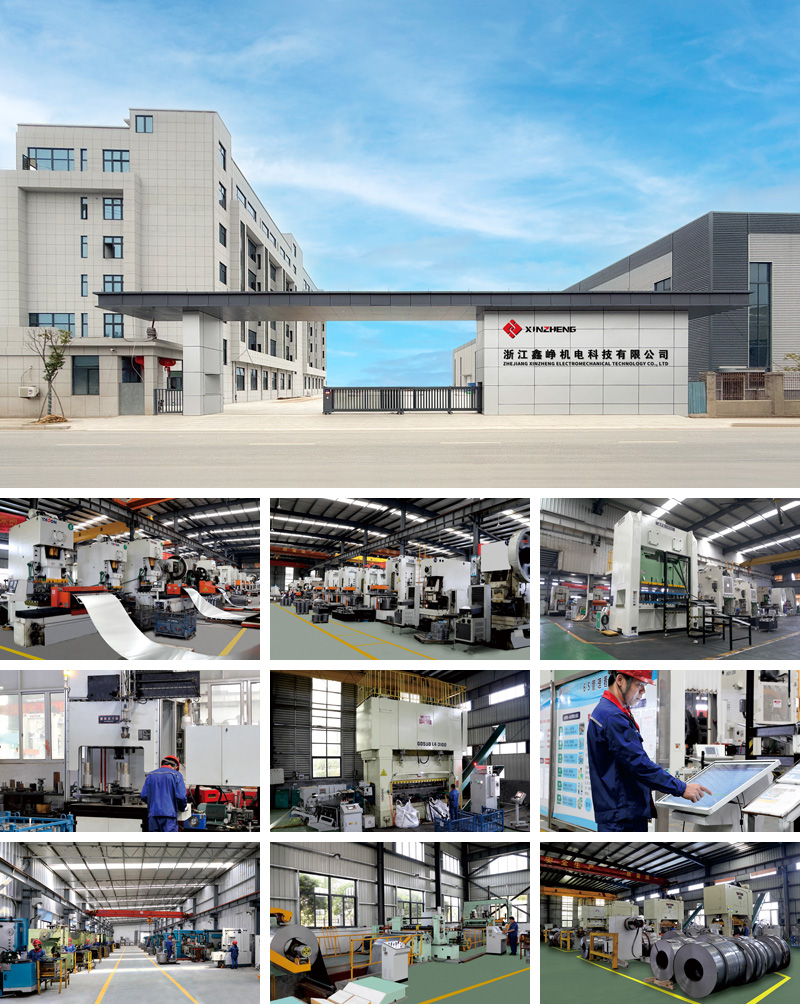As global energy consumption continues to rise and industrial systems operate under stricter efficiency regulations, electric motors have become a central focus in efficiency optimization. The Y2 motor series—widely adopted across general industrial equipment, processing lines, compressors, pumps, and HVAC units—remains one of the most common motor platforms in medium-power applications. To elevate performance while meeting increasingly demanding energy-efficiency requirements, manufacturers are prioritizing improvements in the motor core structure.
One of the most significant advances in this area is the use of low-loss Y2 motor laminations. These laminations are designed to minimize magnetic losses, lower thermal generation, and deliver more stable electromagnetic performance. As industries target lower operational costs and longer service life, interest in low-loss laminations has grown across both mature and emerging markets.
This article provides a comprehensive overview of the engineering fundamentals, material considerations, manufacturing processes, and future trends related to low-loss Y2 motor laminations, offering valuable insights for designers, manufacturers, and procurement specialists.
Motor laminations are thin layers of electrical steel formed into stator and rotor cores. The “low-loss” designation refers to the lamination’s ability to reduce two major forms of magnetic losses:
Generated from circulating currents within the steel when exposed to alternating magnetic fields. These are minimized through thin steel sheets and high-quality insulation coatings.
Occurred due to the energy required to magnetize and demagnetize the steel with each electrical cycle. These depend largely on the steel’s crystalline structure, silicon content, and processing quality.
In Y2 motors, low-loss laminations help achieve:
Lower temperature rise
Improved partial-load efficiency
Reduced noise and vibration
Longer insulation and bearing lifespan
More stable torque and smoother rotation
Their performance is closely tied to material grade, manufacturing precision, and core assembly technique.
The steel used for low-loss Y2 motor laminations typically includes non-oriented electrical steel with optimized silicon content. Key performance parameters include:
Magnetic permeability
Specific core loss at rated frequency
Saturation flux density
Mechanical toughness for punching and stacking
Material grades range from mid-range industrial steel to high-grade, low-watt-loss sheets used in premium motors. Steel purity, annealing processes, and coating quality play a large role in determining final efficiency.
A thin, uniform insulation coating is applied to prevent electrical conduction between laminations. Critical features include:
High interlaminar resistance
Thermal endurance (temperature class B, F, or H)
Adhesion strength during high-speed stamping
Corrosion resistance
Consistent thickness across the sheet
Coating variations can alter lamination performance significantly, especially under high-frequency or continuous-duty conditions.
Low-loss laminations rely on:
Precise slot geometry
Minimal burr formation
Accurate inner and outer diameter concentricity
Controlled material thickness
Tightly maintained tolerances on every dimension
Any irregularity affects air-gap uniformity and magnetic flux distribution, leading to increased losses and unwanted vibration.
Two primary methods are used:
Most common for large-volume Y2 cores. Requires careful tool maintenance to preserve precision.
Used for prototypes, specialty designs, or high-performance units. Offers higher accuracy but lower throughput.
After cutting, laminations are stacked and bonded using:
Welding
Riveting
Glue bonding
Interlocking notches
The stacking technique influences acoustic noise, rigidity, and thermal behavior.
Variations in magnetic properties across batches cause unpredictable behavior in the motor. Reliable suppliers provide fully traceable steel data, including core-loss measurements and metallurgical composition.
High burrs interfere with stacking density and may damage insulation coatings. Low burr height is essential to reduce losses and achieve uniform flux paths.
Even small deviations can cause significant temperature differences and flux imbalance in Y2 motors. High-precision rolling and sorting minimize this risk.
The air gap between stator and rotor directly affects efficiency, torque ripple, and acoustic noise. Low-loss laminations help maintain stable air-gap geometry.
Misalignment leads to core deformation, increased magnetizing current, and vibration-related wear. Automated stacking reduces cumulative error.
Weak or cracked coatings cause shorted turns between laminations, leading to rapid heat buildup and reduced efficiency.
Electrical steel markets are influenced by raw material shortages, regional production capacity, and fluctuating global demand. Maintaining steady quality is a long-term challenge.
Compliance requirements—IE2/IE3/IE4 in many countries—push manufacturers to adopt low-loss materials even in traditionally low-cost motor segments.
Stamping tools degrade over time. Without strict maintenance schedules, dimensional accuracy and burr control decline.
Modern Y2 motors often run at higher loads within smaller frames. Laminations must compensate with better thermal performance and reduced losses.
Dimensional and coating inconsistencies across providers complicate procurement and increase testing burdens.
Low-loss Y2 motor laminations are essential in sectors where efficiency, continuous operation, and thermal stability are critical.
Material-handling systems, gear-driven machines, and mechanical automation lines rely on stable torque and low operating temperatures.
Efficiency improvements translate directly into lower energy bills and enhanced reliability.
Lower losses reduce heat buildup, contributing to quiet operation and longer motor lifespan.
Loads vary widely in these environments; low-loss laminations help motors remain efficient under partial-load conditions.
Y2 motors are widely used across factories, workshops, and processing lines, where reliability and cost-effective operation are priorities.
Choosing a supplier for low-loss Y2 motor laminations involves evaluating several engineering and logistical criteria:
Suppliers should provide reproducible data on electrical steel batches, coating properties, and core-loss performance.
Key indicators include:
Automated measurement systems
High-speed presses with controlled heat effects
Quality systems ensuring burr height and geometry control
Uniform coating reduces eddy-current loss and improves thermal behavior. Suppliers should demonstrate testing capabilities for adhesion and insulation resistance.
Design optimization, tooling recommendations, and performance simulations add value for manufacturers requiring customized Y2 laminations.
Stable output, short lead times, and scalable volume production are essential for global industrial customers.
Several trends are influencing the future of low-loss Y2 motor lamination technology:
Improvements in rolling technology and metallurgical control continue to reduce core-loss values and enhance magnetic properties.
Even traditional Y2 motors are being redesigned to approach premium-efficiency performance levels, driving demand for improved laminations.
Real-time dimensional data, laser-based inspection, and digital tracking enhance consistency across production batches.
New coating formulations aim for improved thermal resistance, lower friction during stacking, and enhanced electrical isolation.
As VFD usage increases, laminations must support higher-frequency operation without excess loss.
Efficiency gains vary with steel grade and geometry, but reductions in core losses generally translate to lower temperature rise and longer service life.
No. Even standard Y2 motors benefit from reduced heat generation and improved stability.
Uneven insulation creates hotspots, increases eddy-current formation, and disrupts predictable magnetic behavior.
Yes. Improved magnetic uniformity and better air-gap consistency contribute to reduced acoustic noise and vibration.
Most manufacturers offer customization in slot geometry, thickness, coating type, and stacking method.
Low-loss Y2 motor laminations are a foundational component in modern industrial motor engineering. By reducing magnetic losses, lowering heat generation, and supporting stable electromagnetic behavior, they significantly enhance motor reliability and energy performance. As global industries move toward stringent efficiency standards and cost-effective operation, the demand for precision laminations continues to grow.
Manufacturers and procurement teams that understand material grades, processing quality, and supplier capabilities are better positioned to build Y2 motors that meet contemporary industrial expectations. With advancing steel technologies and more sophisticated production methods, low-loss laminations will remain essential to the evolution of next-generation motor efficiency.
Product Category

Comprehensive Strength


Copyright © Zhejiang Xinzheng Electromechanical Technology Co., Ltd. All Rights Reserved.
This website uses cookies to ensure you get the best experience on our website.